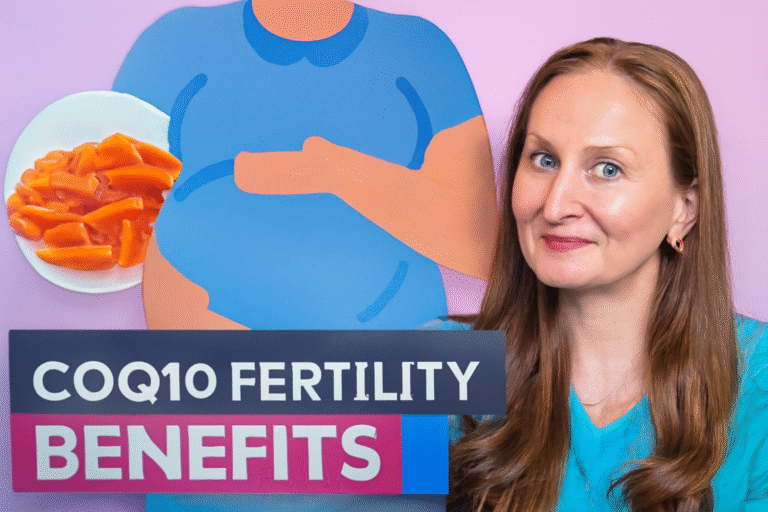Understanding the Conception Timeline
The time it takes to get pregnant varies for every couple. Some conceive quickly, while others take months or even years. Several factors influence fertility, including age, health, and lifestyle choices. Understanding these factors helps couples plan their journey toward parenthood more effectively.
Also read: Can Human Papillomavirus HPV Affect My Fertility?
How Quickly Can You Get Pregnant?
Many couples conceive within six months. About 80% achieve pregnancy within a year of trying. However, conception is not guaranteed within a specific timeframe. Some may need medical assistance if conception takes longer than expected. Every woman’s reproductive system functions differently, which is why predicting an exact timeframe can be challenging.
Factors That Affect Conception
Age and Fertility
Fertility declines with age. Women under 35 have a higher chance of conceiving within a year. After 35, fertility starts to drop significantly, making conception more challenging. By the age of 40, the chances of conceiving naturally are about 5% per cycle. This decline occurs because the number and quality of eggs decrease over time.
Menstrual Cycle and Ovulation
Understanding your menstrual cycle improves your chances of conceiving. Ovulation typically occurs in the middle of the cycle, around day 14 in a 28-day cycle. The fertile window lasts about six days, with the highest chance of conception occurring in the two days before ovulation. Tracking ovulation through apps, basal body temperature, or ovulation predictor kits can be helpful.
Health and Lifestyle Choices
Healthy habits boost fertility. A balanced diet, regular exercise, and avoiding smoking or excessive alcohol can improve reproductive health. Managing stress is equally important, as high levels of stress can impact hormone levels and menstrual cycles.
Medical Conditions Affecting Fertility
Certain medical conditions can interfere with fertility. Polycystic ovary syndrome (PCOS), endometriosis, thyroid disorders, and fibroids can make conception more difficult. If you have a preexisting medical condition, consulting a healthcare professional can provide insights into how it may impact your fertility.
Male Fertility Factors
Men’s health is equally important in the conception process. Sperm quality, motility, and count all play significant roles. Lifestyle factors such as smoking, excessive alcohol consumption, poor diet, and high stress levels can negatively impact sperm health. Maintaining a healthy lifestyle and seeking medical evaluation when needed can improve male fertility.
How to Increase Your Chances of Conception
Track Ovulation
Using ovulation predictor kits or monitoring basal body temperature helps identify the most fertile days. Having intercourse during the fertile window significantly increases the likelihood of pregnancy.
Maintain a Healthy Weight
Being underweight or overweight affects hormone levels, leading to irregular menstrual cycles. A healthy BMI enhances fertility and overall well-being. Studies show that women with a BMI between 18.5 and 24.9 have a higher chance of conception than those outside this range.
Improve Sperm Health
Men should focus on sperm health by eating a nutrient-rich diet, exercising regularly, and avoiding harmful substances like tobacco and excessive alcohol. Certain supplements, such as zinc and vitamin C, may help improve sperm quality.
Reduce Stress Levels
Chronic stress can interfere with hormonal balance, leading to irregular ovulation and lower sperm quality. Practices like yoga, meditation, and mindfulness can help reduce stress and improve reproductive health.
Seek Preconception Care
Visiting a doctor before trying to conceive can help identify any potential health issues. Blood tests, hormone evaluations, and lifestyle assessments can provide valuable insights into improving fertility.
How Long Does It Take to Get Pregnant on Birth Control?
Many women wonder how soon they can conceive after stopping birth control. The time frame depends on the type of contraceptive used.
- Birth Control Pills: Most women ovulate within a month after stopping, but it may take a few months for cycles to regulate.
- IUDs (Intrauterine Devices): Fertility can return immediately after removal.
- Depo-Provera Shot: It can take up to 10 months for ovulation to resume after the last injection.
- Implants and Patches: Fertility usually returns quickly after discontinuation.
When to Seek Medical Help?
If pregnancy does not occur within a year, couples should seek medical advice. Women over 35 should seek help after six months. A fertility specialist can perform tests to determine potential issues and recommend appropriate treatments, such as ovulation induction, intrauterine insemination (IUI), or in vitro fertilization (IVF).
Common Fertility Tests
- Ovulation Tests: Blood tests or home kits detect ovulation.
- Ultrasounds: Check for abnormalities in the reproductive organs.
- Semen Analysis: Evaluates sperm quality and motility.
- Hormone Testing: Measures levels of key fertility hormones.
Fertility Treatments and Options
Ovulation Induction
Medications like Clomid or Letrozole stimulate ovulation in women who have irregular cycles.
Intrauterine Insemination (IUI)
A procedure where sperm is placed directly into the uterus to increase fertilization chances.
In Vitro Fertilization (IVF)
Eggs are retrieved and fertilized outside the body before being implanted into the uterus. This method is used for various fertility issues, including blocked fallopian tubes and severe male infertility.
Final Thoughts
Conception is different for everyone. While some get pregnant quickly, others may take time. Understanding fertility and making healthy choices can improve the chances of success. Seeking medical advice when necessary ensures the best possible outcome. Staying informed and proactive can help couples navigate the journey to parenthood more confidently.




